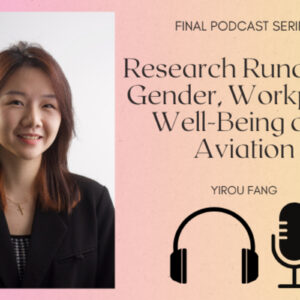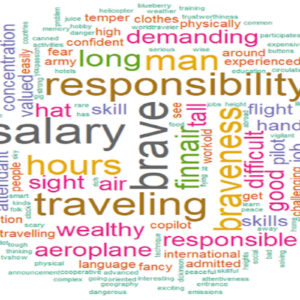
Yirou Fang
ESR 9
E-Mail: yirou.fang@helsinki.fi
Project abstract
The underrepresentation of women and gender minority in many male-dominant fields, especially STEMs, has long been a problem occurring globally (U.S. Department of Education, NCES 2014). Even after entering those fields, females are less likely to preserve and more likely to opt out. Importantly, studies indicated that most women left STEM disciplines due to negative workplace climate but not limitation of professional capabilities (e.g. Cheryan, Ziegler, Montoya, & Jiang, 2017). Meanwhile, low perceived belongingness, harassment, compensation inequality, work-home conflict, and many other factors contributed to the negative workplace climate (Gruber et al., 2020; Cardador & Hill, 2018).
Workplace and organizations are majorly responsible for stress experienced by adults (DeFrank & Cooper, 1987). Also, negative workplace climate directly influences one’s wellbeing such as causing burnout (Gagne & Deci, 2005). Work-related stress (work burnout) has a significant role in turnover (American Psychological Association, 2009). However, studies also indicate that different factors contribute to better wellbeing: personality traits such as grit help with burnout at high school (Tang, Upadyaya & Salmela-Aro, 2021); personality trait such as mindfulness and managerial climate such as autonomy-supportive environment help with work burnout (Gagne & Deci, 2005; Patricia, Richard, Christopher, Nicole & Groffrey, 2014). Yet, study on the gendered work burnout experience has been scant. Hence, the question of how people of different genders experience and cope with work burnout becomes crucial in exploring gendered pathways conductive to workplace wellbeing.
Thus, the aims of this project are to identify factors that help people to cope with or overcome psychological setbacks (work burnout) and to develop and validate a diversity training if possible. In the first part of the study, I will investigate the relationship between young adults’ gender, psychological wellbeing (e.g., high level of work burnout), and career aspiration using the FinEdu (2003-ongoing) dataset. Then, I will investigate gendered factors associated with the burnout experience (e.g., personal traits, engagement, motivation factors) by developing a questionnaire. Lastly, I will corporate with Finnish Aviation Academy to investigate existed systemic problems that are causing the lack of female pilots/ pilot applicants (survey or interview with current female pilot). If possible, I will work with experts and people from the institution to develop an intervention for more female pilot applicant by preparing young candidates with better understanding of their choices and coping skills needed for later possible setbacks.
Supervisor: Prof. Dr. Katariina Salmela-Aro, University of Helsinki/Finland
Posts
 Gender-related factors influencing people’s work experience and job burnout 9. June, 2024 In this podcast episode, G-Versity early stage researcher, Yirou Fang… …
Gender-related factors influencing people’s work experience and job burnout 9. June, 2024 In this podcast episode, G-Versity early stage researcher, Yirou Fang… …Gender-related factors influencing people’s work experience and job burnout Read More »
 Gender, well-being, and power: An example of a pilot 9. December, 2023 Participating in the European Airline Training Symposium (EATS: Pilot Conference… …
Gender, well-being, and power: An example of a pilot 9. December, 2023 Participating in the European Airline Training Symposium (EATS: Pilot Conference… …Gender, well-being, and power: An example of a pilot Read More »
 Mini-Interviews With Our Early Stage Researchers: Research Topic And Surprising Findings (2) 1. September, 2023 In Part 2 of the interview with our ESRs, Andrea… …
Mini-Interviews With Our Early Stage Researchers: Research Topic And Surprising Findings (2) 1. September, 2023 In Part 2 of the interview with our ESRs, Andrea… … Mini-interviews with our Early Stage Researchers: Research Topic and Surprising Findings 23. July, 2023 In this interview, our ESRs Yirou Fang, Mary Ann Ciosk,… …
Mini-interviews with our Early Stage Researchers: Research Topic and Surprising Findings 23. July, 2023 In this interview, our ESRs Yirou Fang, Mary Ann Ciosk,… …Mini-interviews with our Early Stage Researchers: Research Topic and Surprising Findings Read More »
 Is burnout gendered? 13. February, 2023 The job market is majorly responsible for burnout experience for… …
Is burnout gendered? 13. February, 2023 The job market is majorly responsible for burnout experience for… … The New Normal 17. February, 2022 Normality is a made-up construct, and it is constantly changing… …
The New Normal 17. February, 2022 Normality is a made-up construct, and it is constantly changing… …
